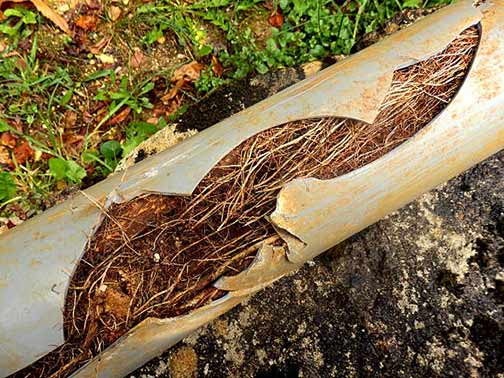Here we will explore the most prevalent problems faced by Chicago residents concerning their sewer and drain systems. Additionally, we will provide expert tips on how to prevent these issues, saving you time, hassle, and potentially costly repairs. Whether you are a homeowner, business owner, or simply curious about the inner workings of urban plumbing, this article is designed to be informative, practical, and accessible to all.
The Importance of Maintaining Your Sewer Line and Drain Systems
In a large city like Chicago, with its extensive network of pipes and drains, it is essential to prioritize the maintenance of your sewer and drain systems. Neglected or poorly maintained infrastructure can lead to a host of problems, ranging from unpleasant odors and plumbing backups to more severe issues such as water damage, structural damage, and health hazards.
By proactively preventing common sewer and drain issues, you can ensure the longevity and efficiency of your plumbing system while safeguarding the health and well being of your family, employees, and neighbors.
Common Sewer and Drain Issues in Chicago
Let’s delve into the specific sewer and drain issues that frequently plague Chicago residents:
1. Tree Root Intrusions
Chicago’s beautiful tree lined streets can sometimes be the cause of sewer and drain problems. As trees grow, their roots can extend underground and infiltrate sewer lines, causing blockages, leaks, and pipe damage. This issue is particularly prevalent in older neighborhoods with mature trees.
To prevent tree root intrusions, consider the following:
- Plant trees away from sewer lines, if possible.
- Regularly inspect your sewer lines for signs of root intrusions.
- Consider using root barriers during tree planting.
- If tree roots have already infiltrated your sewer lines, consult a professional plumber in Chicago for appropriate solutions.
2. Clogs and Blockages
Clogged drains are a common issue faced by many Chicagoans. Whether it’s a kitchen sink, bathroom drain, or toilet, clogs can be incredibly frustrating and disruptive.
To prevent clogs and blockages:
- Avoid disposing of grease, oils, or food scraps down the drain.
- Use drain screens or stoppers to catch hair, debris, and other potential clogging agents.
- Regularly clean your drains using natural or commercial drain cleaners.
- Seek professional help if you encounter persistent or severe clogs.
3. Sewer Line Collapses
Over time, sewer lines in Chicago can deteriorate, leading to collapses or complete failure. This can result in sewage backups, foul odors, and potential health hazards.
Prevention tips for sewer line collapses:
- Be mindful of what you flush down the toilet or drain. Avoid disposing of items that can cause blockages or damage.
- Consider regular inspections and maintenance of your sewer lines, especially if you reside in an older property.
- If you notice warning signs such as slow drainage or foul smells, contact a professional plumber.
4. Sump Pump Failures
In Chicago’s rainy climate, sump pumps play a crucial role in preventing basement flooding. However, these systems can fail, leaving your property vulnerable to water damage.
Prevent sump pump failures with these tips:
- Regularly inspect and maintain your sump pump, ensuring it is free from debris and functioning correctly.
- Consider installing a battery backup system to ensure continued operation during power outages.
- Test your sump pump periodically to ensure it is in working order.

While chemical drain cleaners may provide a temporary fix for minor clogs, they can also be harsh on your plumbing system and the environment.
Preventive Measures for Healthy Sewer and Drain Systems
Now that we have explored the most common sewer and drain issues in Chicago, let’s discuss preventive measures to keep your plumbing system healthy:
1. Regular Sewer Camera Inspections
Schedule regular sewer camera inspections with a plumber in Chicago to detect any potential issues before they escalate. This proactive approach can save you both time and money in the long run.
2. Proper Waste Disposal
Dispose of waste properly to prevent clogs, blockages, and sewer line damage. Avoid flushing items such as wipes, diapers, or feminine hygiene products, as they can cause significant problems.
3. Avoiding Chemical Drain Cleaners
While chemical drain cleaners may provide a temporary fix for minor clogs, they can also be harsh on your plumbing system and the environment. Consider using natural alternatives or contacting a professional plumber for safe and effective solutions.
4. Grease Traps
If you own or manage a restaurant or any food related establishment, installing and maintaining grease traps is crucial in preventing grease buildup and subsequent sewer line issues.
5. Proper Landscaping
When planting trees and shrubs, be cautious of their proximity to sewer lines. Plan your landscaping in a way that minimizes the risk of root intrusions.
6. Educate Residents and Employees
If you are a property owner or manager, educate your residents or employees about proper plumbing practices. Emphasize the importance of responsible waste disposal and the potential consequences of neglecting sewer and drain maintenance.
As a responsible resident or business owner in Chicago, maintaining the health of your sewer and drain systems should be a top priority. By being aware of common issues such as tree root intrusions, clogs, sewer line collapses, and sump pump failures, you can take preventive measures to ensure the smooth operation of your plumbing system.
Remember, regular inspections, proper waste disposal, and taking necessary precautions can go a long way in preventing expensive repairs, water damage, and inconvenience. By implementing the tips and strategies outlined in this article, you can enjoy a worry free plumbing system and contribute to the overall well-being of the Chicago community.
